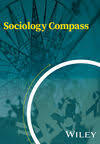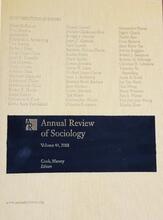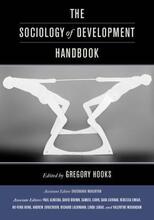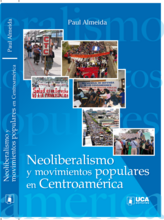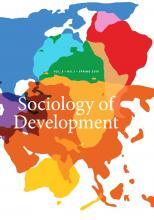The disciplinary fields of immigration and social movements have largely developed as two distinct subareas of sociology. Scholars contend that immigrant rights, compared to other movements, have been given less attention in social movement research. Studies of immigrant-based movements in recent decades have reached a stage whereby we can now assess how immigrant movement scholarship informs the general social movement literature in several areas. In this article, we show the contributions of empiricalstudies of immigrant movements in four primary arenas: (a) emergence; (b) participation; (c) framing; and (d) outcomes. Contemporary immigrant struggles offer social movement scholarship opportunities to incorporate these campaigns and enhance current theories and concepts as earlier protest waves advanced studies of collective action.
Publications
2018
A growing body of scholarship acknowledges the increasing influence of global forces on social institutions and societies on multiple scales. We focus here on the role of globalization processes in shaping collective action and social movements. Three areas of global change and movements are examined: first, long-term global trends and collective action; second, research on national and local challenges to economic globalization, including backlash movements and the types of economic liberalization measures most associated with inducing oppositional movements; and third, the emergence of contemporary transnational social movements. In each of these arenas we address debates on diffusion, intervening mechanisms, and the outcomes of collective mobilization in response to global pressures.
2017
En este trabajo se estudian los movimientos sociales que luchan por la justicia social, racial, econ\ omica y ambiental en los Estados Unidos. El conocimiento sobre movimientos sociales define al campo como enfocado en los actores colectivos excluidos, que luchan por derechos, recursos y poder (Jenkins, 1985; McAdam, 1999; Piven, 2006; Tarrow, 2011). En este ensayo retomamos este tema originario en la investigaci\ on de la acci\ on colectiva, al resaltar las principales formas de exclusi\ on que conducen a la movilizaci\ on popular a gran escala en Estados Unidos contempor\ aneo. La exclusi\ on es, con frecuencia,el punto de partida para la formaci\ on del movimiento social, aunque una indagaci\ on m\ as espec\ ıfica de las estructuras institucionales que generan divisiones sociales contribuye a nuestra comprensi\ on de la probabilidad de la aparici\ on de resistencia colectiva. En este cap\ ıtulo realizamos una clasificaci\ on m\ as precisa de la exclusi\ on (legal, ambiental,econ\ omica y cultural) y de las respuestas consiguientes de los movimiento sociales.
Using an innovative survey of protest participants and nonparticipants from five major street demonstrations in Mexico City in 2011 and 2012, this study tests the assumption that influences on protest participation vary across different types of events; namely, ritual demonstrations and reactive protests. The comparison is based on two assumptions: that these are two of the dominant forms of protest in contemporary Latin America, and that specifying the context for different types of social movement participation provides a better understanding of the individual mobilization process for groups seeking to defend their rights or gain new benefits. The comparative analyses reveal some crucial differences. Political interest and previous political experience are more influential in the decision to take part in reactive demonstrations. For ritual demonstrations, the decision to participate tends to be driven more by personal and organizational connections.
2016
The Sociology of Development Handbook gathers essays that reflect the range of debates in development sociology and in the interdisciplinary study and practice of development. The essays address the pressing intellectual challenges of today, including internal and international migration, transformation of political regimes, globalization, changes in household and family formations, gender dynamics, technological change, population and economic growth, environmental sustainability, peace and war, and the production and reproduction of social and economic inequality. Table of ContentsIntroduction: A Manifesto for the Sociology of Development - Samuel Cohn and Gregory HooksI. EXPLAINING DEVELOPMENT: SOCIOLOGICAL INSIGHTS1. Engendering Development: The Evolution of a Field of Research - Valentine M. Moghadam2. Population and Development - Laszlo J. Kulcsar3. Strengthening the Ties between Environmental Sociology and Sociology of Development - Jennifer E. Givens, Brett Clark, and Andrew K. Jorgenson4. The Sources of Socioeconomic Development - Adam SzirmaiII. HUMAN CAPABILITIES: INSTITUTIONS AND DEVELOPMENT5. Interdisciplinary Perspectives on the Global North and Global South - Jeffrey T. Jackson, Kirsten Dellinger, Kathryn McKee, and Annette Trefzer6. Magic Potion/Poison Potion: The Impact of Women’s Economic Empowerment versus Disempowerment for Development in a Globalized World - Rae Lesser Blumberg7. Land Use and the Great Acceleration in Human Activities: Political and Economic Dynamics - Thomas K. Rudel8. Age Structure and Development: Beyond Malthus - David L. Brown and Parfait Eloundou-Enyegue9. Development, Demographic Processes, and Public Health - Joshua Stroud, Philip Anglewicz, and Mark VanLandingham10. Education and Development - David B. BillsIII. DEVELOPMENT DYNAMICS: SPATIAL AND TEMPORAL ACCOUNTS11. The Sociology of Subnational Development: Conceptual and Empirical Foundations - Linda Lobao 12. Sociological Perspectives on Uneven Development: The Making of Regions - Ann R. Tickamyer and Anouk Patel-Campillo13. Migration and Development: Virtuous and Vicious Cycles - Sara R. Curran14. Tertiary Education and Development: Strategies of Global South Countries to Meet Growing Tertiary Demand - Mary M. Kritz15. Migrant Networks, Immigrant and Ethnic Economies, and Destination Development - Kim Korinek and Peter LoebachIV. BUILDING STATES AND FAILING STATES: DEVELOPMENT TRIUMPHS AND DISASTERS16. The State and Development - Samuel Cohn17. Women, Democracy, and the State - Kathleen M. Fallon and Jocelyn Viterna18. War and Development: Questions, Answers, and Prospects for the Twenty-first Century - Gregory Hooks19. Neoliberalism, the Origins of the Global Crisis, and the Future of States - Richard Lachmann20. Crisis and the Rise of China - Ho-fung Hung21. Conflict and Development in Sub-Saharan Africa - Zoe Marriage22. Social Movements and Economic Development - Paul AlmeidaV. GLOBAL COMPLEXITIES AND LOCAL CONTEXTS: NEW PARADIGMS FOR EXPLAINING DEVELOPMENT23. Globalization and Development - Nina Bandelj and Elizabeth Sowers24. Transitions to Capitalisms: Past and Present - Rebecca Jean Emigh25. Quantitative Growth and Economic Development through History - Rosemary L. Hopcroft26. The Great Divergence: Why Did Industrial Capitalism Emerge in Europe, Not China? - Dingxin Zhao27. Global Commodity Chains and Development - Jennifer Bair and Matthew Mahutga
Luego de seis años en los que la obra de Paul Almeida, Olas de movilizaci\ on popular, ha estado contribuyendo al estudio de los movimientos sociales salvadoreños, UCA Editores publica otra investigaci\ on suya: Neoliberalismo y movimientos populares en Centroam\ erica. En su versi\ on inglesa, fue premiada en 2015 (Distinguished Scholarship Award - Pacific Sociolgical Association) y en 2016 (Honorable Mention por la American Sociological Association - Sociology of Development Section).Almeida Analiza en este libro las luchas populares en el istmo, entendidas como "campañas de protesta", las cuales se han enfilado en las \ ultimas d\ ecadas en contra de los cambios econ\ omicos ligados a la globalizaci\ on neoliberal (privatizaciones, libre comercio, incremento de precios, etc.). A diferencia de las movilizaciones colectivas de largo plazo, las campañas de protesta se enfocan en pol\ ıticas particulares, su movilizaci\ on suele ser ef\ ımera y, por lo general, tienden a ser menos espont\ aneas que los disturbios porque implican, de parte de los actores involucrados, un c\ alculo de medios y estrategias.Asociaciones laborales, grupos de mujeres, ind\ ġenas, partidos de opsocisi\ on, movimientos estudiantiles y de maestros, ONG, entre muchos otros, son los sujetos principales del libro. En ocho cap\ ıtulos, el autor estudia no solo el caso de cada pa\ ıs centroamericano, sino tambi\ en examina, de manera comparativa, las coaliciones y las alianzas multisectoriales entre aquellos actores, cuyas formas de resistencia adem\ as de ser pac\ ıficas, en ocasiones se han tornado disructivas con el sistema hegem\ onico.
2015
The mass mobilizations against neoliberal reforms are rooted in the weakening of the state-led development model and the erosion of social citizenship rights. At the same time, infrastructures created by the developmental state provide the organizational capacity to resist market-driven globalization. The study develops a conceptual framework for understanding the major arenas of state-led development in the twentieth century in relation to the infrastructures and organizations that mobilize social movement campaigns against neoliberalism in the twenty-first century. Special attention is given to public education, health care, public utilities, state subsidies, and transportation networks as laying the foundation for civil society’s ability to collectively defend social protections granted in the preglobalization era in the global South.

